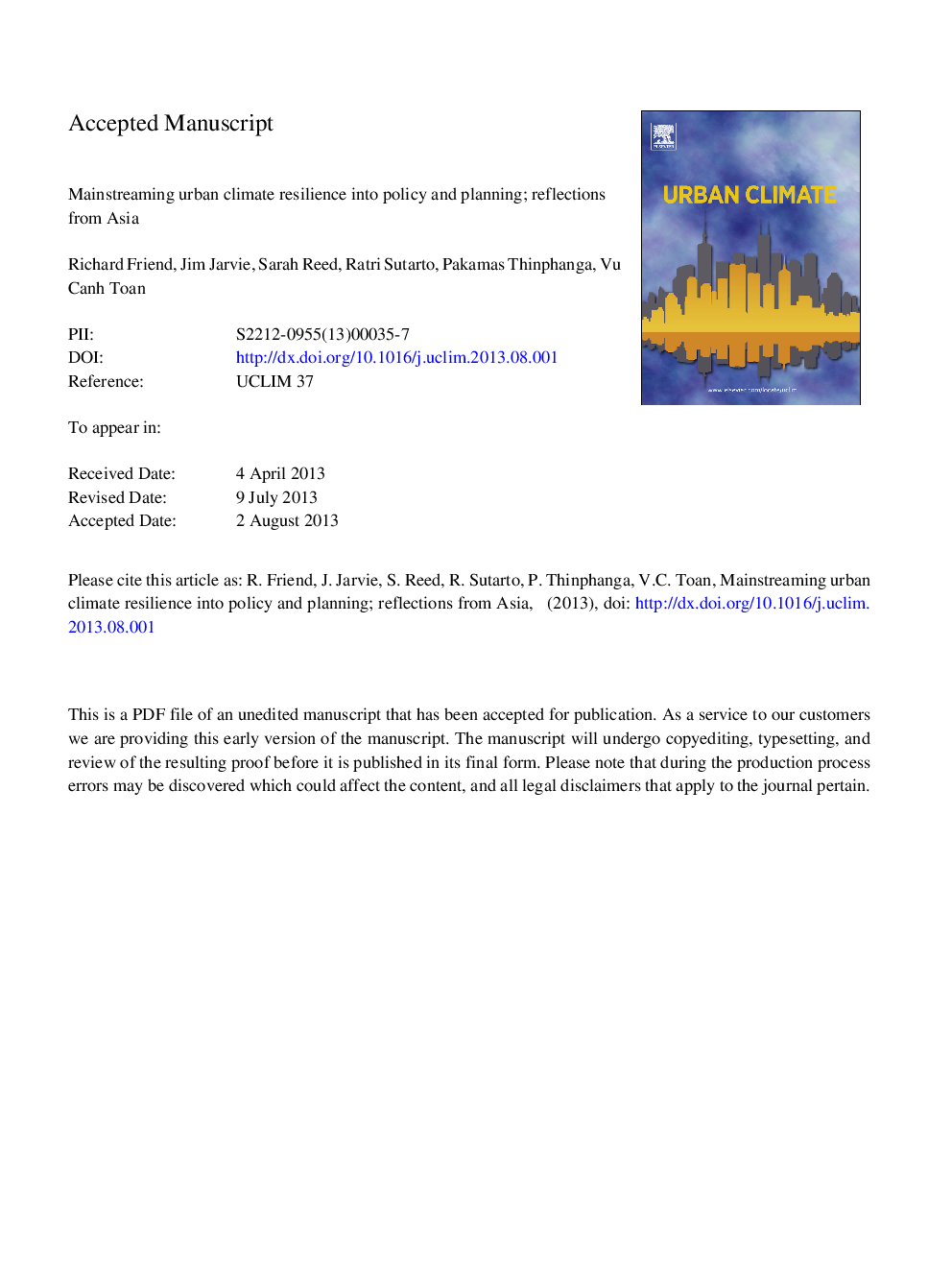| Article ID | Journal | Published Year | Pages | File Type |
|---|---|---|---|---|
| 6577011 | Urban Climate | 2014 | 24 Pages |
Abstract
Emerging literature on urban climate adaptation emphasizes the need to “mainstream” climate change resilience into city planning, while simultaneously acknowledging a frequent disconnect between planning and implementation, especially in countries where governance lacks transparency and/or technical capacity. Moreover, how to influence planning towards prioritizing climate vulnerabilities is by no means self-evident. Particularly in developing countries, policy and planning processes are often complex, murky, and can be poorly understood even by the planners themselves. This paper discusses gaps in the process of mainstreaming climate resilience in Vietnam, Thailand, and Indonesia. Experience indicates that there is a common fundamental governance deficit among the three countries in that there is frequently no effective planning process into which climate change resilience could be mainstreamed. Even where governance mechanisms do function, they are often at odds with the kinds of adaptive, learning oriented processes that are at the heart of climate resilience theory. Reconfiguring urban governance is the core challenge, and within this, greater accountability and transparency. This requires informed public dialogue, where critical information about land, current and projected risks and vulnerabilities is in the public domain, and where regulatory framework, public access to redress and remedy is strengthened.
Related Topics
Physical Sciences and Engineering
Earth and Planetary Sciences
Earth and Planetary Sciences (General)
Authors
Richard Friend, Jim Jarvie, Sarah Orleans Reed, Ratri Sutarto, Pakamas Thinphanga, Vu Canh Toan,
